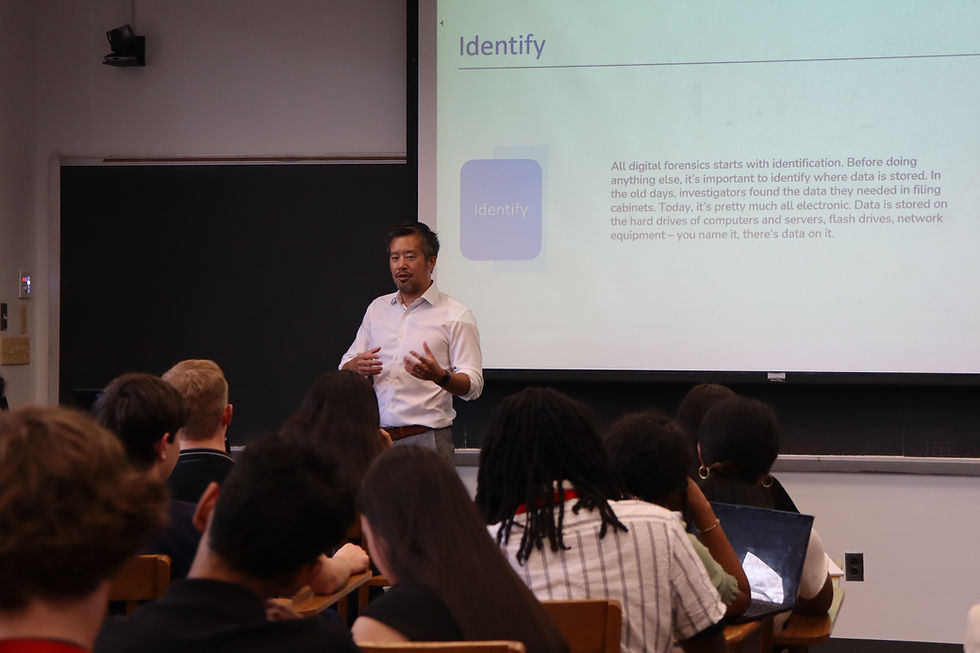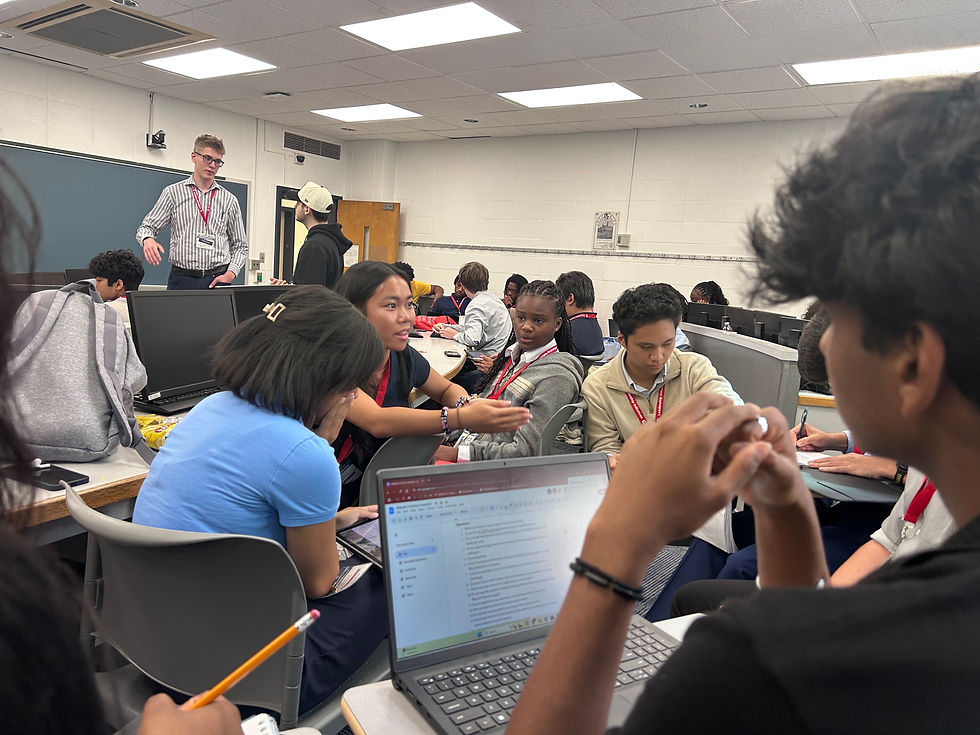Forensics, Law, and the Path to Impact
- Marshall Bailly
- Jul 17, 2025
- 1 min read
Wednesday was a high-impact day focused on the intersection of cybersecurity, law, and investigative techniques. The morning began with a Tech Ops Tour where interns experienced multiple rotations through real-world cybersecurity environments. Students explored incident response teams and the human-centered protocols used to detect and neutralize threats. They learned about the role of Tech Ops and rotated through hands-on demonstrations featuring surveillance equipment, investigative software and systems, and a range of technical tools used in real federal investigations.
In the afternoon, Professor Phuong Nguyen led an engaging session on Cybersecurity Forensics. Interns learned how digital forensics is used to recover data, analyze breaches, and preserve evidence in cybercrime cases.

Additionally, Brian Levine, Senior Principal at EY-Parthenon, delivered a session on Cybersecurity Law and Criminal Prosecution. Levine discussed key legislation, digital rights, and the legal processes surrounding cybercrime. He also shared real-world legal case studies that underscored the connection between cybersecurity policy, criminal prosecution, and systemic reform.

Later, interns completed their final Linux Lab with Beth Cerrone, advancing their skills and beginning to apply their technical learning to the risk assessments they’re developing for their nonprofit partners. Teams then spent the rest of the afternoon preparing for their second nonprofit meetings, updating their partners with refined strategies and early-stage recommendations.

In the evening, students held their second round of nonprofit consultations, deepening their relationships with organizations and receiving early feedback on their proposed ideas. They discussed staff training, password security, access controls, and the practicality of implementation given their partner’s needs and limitations.






Comments